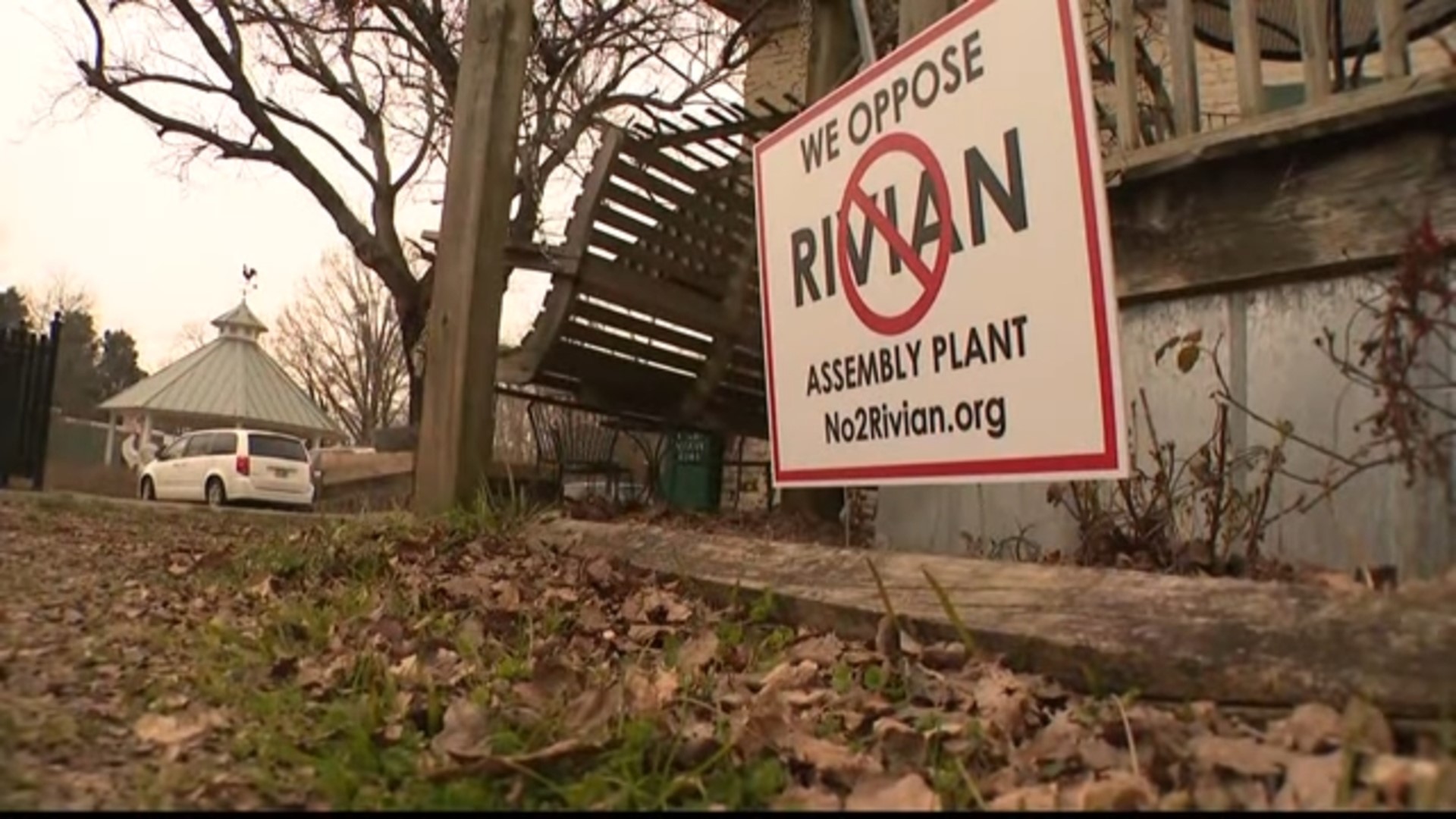WALTON COUNTY, Ga. — Riled up residents spoke passionately Monday in front of a dozen city and county planners, environmental staff and engineers about their concerns involving a two-thousand-acre electric vehicle plant moving into town.
The Monroe branch of Athens Technical College hosted dozens of people from mostly Morgan and Walton Counties. John Eunice, deputy director of the Georgia Environmental Protection Division, chaired the meeting. It is one of four scheduled, designed to receive public input and suggest how Rivian should draw up permits they will eventually file to be able to build a plant on rural land in Newton, Walton and Morgan Counties. A representative from Rivian also joined the meeting virtually.
"We will provide a set of recommendations for Rivian, along with suggestions and comments for them to consider as they are developing their permit applications that ultimately will be reviewed by the agency," Eunice said. "As Georgia EPD, we have the ability to review those and ensure they comply with federal and state law and the federal and state rules that are associated with those environmental laws.”
Governor Brian Kemp announced the plant was coming in December and promised it would bring 7,500 jobs to the area. However, many residents felt blindsided because they were not advised before Kemp made the announcement.
Pam Jones works as a registered nurse. She was in recovery from long-haul COVID when she heard the plant was coming to her neighborhood. She's worried the quality of life will plummet if Rivian moves in. Jones, who lives in Morgan County, said besides the threat of air pollution and wildlife disturbance, the area's water supply could be at risk.
“I have to plan my day to where I get a shower and wash clothes at a different time," Jones said. "That’s what people in the city may not know well water is like, and our well has run dry.”
Morgan County resident Keith Wilson said protecting the water supply was a top concern for him as well. He would also like to see better transparency when it comes to hearing community concerns.
"This is a water ground recharge area, and they’re proposing to concrete over it," Wilson said. "The majority of this area is on wells. Residents are concerned about their water. I don’t mind Rivian being in the state. There are plenty of locations better suited for Rivian than Rutledge.”
RELATED: An effort to build an electric truck plant is getting a boost, but also seeing local opposition
As for the next steps, Eunice said the Georgia Environmental Protection Division is waiting for Rivian to file environmental permits before they can proceed. Ultimately, EPD would decide whether to accept the permits. The permits need to be approved before Rivian can complete construction and operate.
The four meetings, which will also give residents to speak about local business engagement, workforce development and quality of life, are not legally required per Eunice, but they could shape how Rivian files their permits and conducts business.
“That’s up to Rivian, when they actually submit the permits," Eunice said. "Once they submit them to us, we’ll review them and that does take time. We'll evaluate impacts on air quality, impacts on water quality and impacts on land disturbance.”
However, Jones doesn't think the committees can turn her complaints into action.
“I don’t think they have any power," Jones said. "I think these meetings are to pacify the citizens and where the governor can say we had citizen opposition meetings where we heard their concerns.”
11Alive reached out to the Governor's Office, which directed us to the Georgia Department of Economic Development. In a statement, it said: "This project has not been finalized yet, as incentive agreements are still being negotiated on this $5 billion project. When details of that agreement are finalized, they will also be posted publicly on the Georgia Department of Economic Development’s website."
The Georgia Chamber of Commerce also sent 11Alive a statement in support of the Rivian plant: “We are committed to helping the Department of Economic Development and local partners facilitate a transparent and environmentally friendly plan of action that leads to the same kind of economic success and corporate stewardship we see across Georgia,” said Chris Clark, President & CEO of the Georgia Chamber. “The widespread positive sentiment that we’ve felt within the community and the state since the Rivian project was announced in late December continues to this day and while there is certainly more work to be done by the state, local community and Rivian, citizens recognize the immense opportunity that this project represents for families, local businesses, schools, and area infrastructure.”
Any updates on Rivian's development in Georgia can click here for updates.

